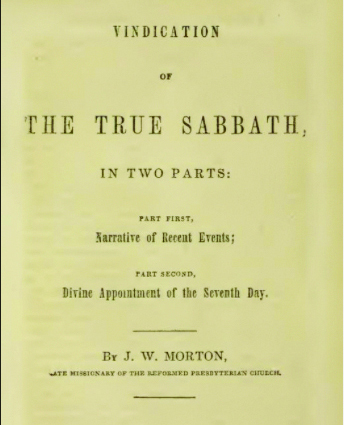You have free articles remaining this month.
Subscribe to the RP Witness for full access to new articles and the complete archives.
The Reformed Presbyterian Church of North America (RPCNA) first sent foreign missionaries to Syria before the American Civil War, and mission work in Cyprus and China began before 1900. However, the church’s first foreign mission work was much more obscure—and much closer to home—than any of these locations. Were you aware that an RP mission was once located in Haiti?
For generations, Reformed Presbyterians tended to focus on matters that divided them from other Presbyterians, especially political dissent. “Missionary” work generally consisted of sending ministers to the frontier to gather scattered members into congregations. However, by the 1840s, the church purposed to contribute to the evangelization of other cultures.
The Synod of 1843 decided to start a foreign mission “as soon as practicable,” and the Danish (now U.S.) Virgin Islands were designated as the location; but the 1845 Synod retargeted efforts toward Haiti. Synod chose two missionaries in 1847: Joseph W. Morton and Robert J. Dodds. Morton had already been serving as a pastor for two years, so he took his family to Port-au-Prince seven months later; but Dodds wasn’t yet ordained and couldn’t be sent yet.
Morton started teaching, preaching, and translating the church standards into French. However, in December 1848, he met local missionaries from the Seventh Day Baptist Church. They demanded he prove that the first day of the week, not the seventh, ought to be kept as the Sabbath. After studying the subject carefully, he came to agree with their views. He and his family began keeping a seventh-day Sabbath, but, because of his responsibilities to the church, he didn’t start teaching his new views.
In January 1849, Morton sent a letter to several dozen elders across the RPCNA. In it, he declared his new convictions, explained why and how he had reached them, and urged them to follow. At the Synod of 1849, Morton was put on trial for heresy, based on his letter. He was convicted and suspended from the ministry and membership, and he soon left to join the Seventh Day Baptists. Dodds never did reach Haiti, and the mission was given up.
The RPCNA considered mission work in Ecuador in the 20th Century, but, until we began church planting and other involvement in several Latin American countries in the 21st Century, the Haiti mission was the RPCNA’s only foreign mission work in the Americas.
